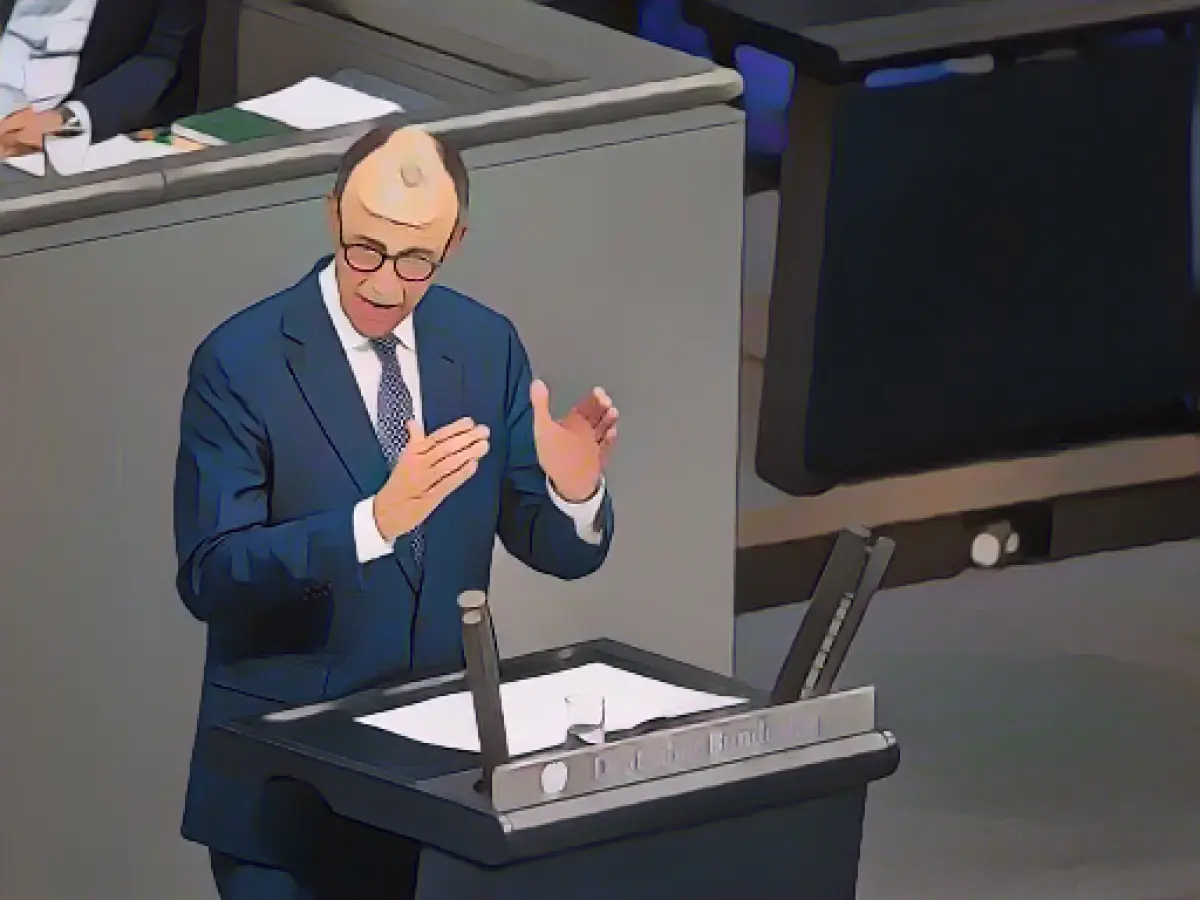Debate on a way out of the budget crisis - Merz wants cuts
Following the Federal Constitutional Court's ruling on the budget, a way out of the dramatic funding crisis is not yet in sight. Federal Economics Minister Robert Habeck nevertheless wants to stick to the federal government's plans with regard to climate protection and investment.
"We still have to make this possible," said the Green politician on Tuesday evening in the ZDF program "Markus Lanz". CDU party chairman Friedrich Merz, on the other hand, called for a waiver of the basic child insurance, the heating law and a higher citizen's income. "Not everything is possible anymore," he said on the ARD talk show "Maischberger".
Habeck emphasized that the task now was to find a way out of the financial difficulties caused by the Karlsruhe ruling "in a calm and focused manner". These solutions should initially be worked out "behind the scenes" and not in a public discussion. He defended the German government's decision not to have invoked an "emergency situation" for 2023 with regard to the debt brake, which might have made it safer to take on debt. This decision had been taken jointly by the traffic light coalition of SPD, Greens and FDP.
Solution to the problem
Last week, the Federal Constitutional Court declared the reallocation of 60 billion euros in the 2021 budget null and void. The money had been approved as a coronavirus loan, but was subsequently to be used for climate protection and modernizing the economy. At the same time, the judges ruled that the state may not reserve emergency loans for later years. As a result, further billions of euros for future projects are at risk. As the exact impact on the regular budget is still unclear, the Ministry of Finance decided to block certain commitments of all ministries for future years in the budget as a precautionary measure.
The safest solution to the problem is considered to be changes to the Basic Law, either in the functioning of the debt brake or for the anchoring of special funds - such as investments in the German armed forces, which are secured in the constitution. However, this requires a two-thirds majority in the Bundestag. However, it is also considered unrealistic to raise the huge billions needed for the Climate and Transformation Fund (KTF) and the Economic Stabilization Fund (WSF) with the energy price brakes, which was also stopped on Tuesday, with savings or higher budget revenues alone.
Higher taxes?
The North Rhine-Westphalian Minister for Economic Affairs, Mona Neubaur (Greens), spoke out in favor of a cross-party solution. "It must not be about gaining ground in party politics. Now is the time to work together in alliances across party lines. The CDU and FDP in the federal government must also make a note of this," Neubaur told the Rheinische Post newspaper. She was pleased that a special conference of federal and state economics ministers had been planned at short notice. SPD parliamentary group deputy Matthias Miersch told the "Redaktionsnetzwerk Deutschland": "The red pencil alone will not solve any of our problems."
The CDU/CSU and FDP are considered to be supporters of the debt brake, which makes it difficult to take on new debt except in emergency situations for which the state is not responsible. CDU party leader Merz does not consider a relaxation to be on the cards either: "I don't see us having to approach the debt brake at the moment." He also rejected higher taxes on "Maischberger": "Germany is already a high-tax country and we shouldn't overdo it." FDP deputy leader Wolfgang Kubicki also spoke out against higher taxes in the "Rheinische Post". What is needed instead is a "fundamental debate about what we can and cannot finance".
- In response to the Federal Constitutional Court's ruling on budget finance, Robert Habeck, the Green Party's Federal Economics Minister, mentioned that the household expenses of the Federal Government, particularly in regards to climate protection and investment, should not be compromised.
- During a discussion on TV, Friedrich Merz, the CDU party chairman, suggested cutting back on basic child insurance, the heating law, and increasing the citizen's income as potential solutions to the financial crisis, stating, "Not everything is possible anymore."
- In the wake of the budget crisis, Robert Habeck contrasted the approach of the Federal Government and Robert Habeck, stating that they aim to resolve the problems behind the scenes without involving traffic lights, advocating for a thoughtful solution opposite Merz's call for urgent action.
Source: www.dpa.com







